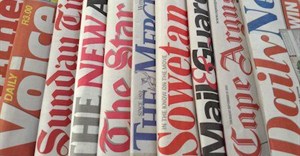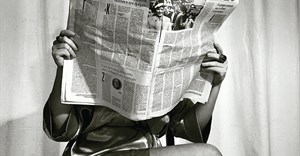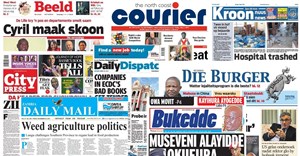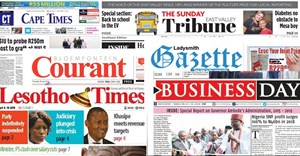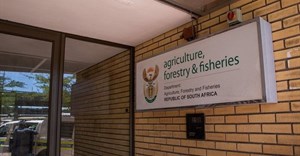Survé right to worry over figures of his papers
If he is going to fire all the editors of his group's 18 newspapers that have shown significant declines in recent years, that means at least 16 of them will go, leaving only those who run the Zulu Isolezwe and its Sunday edition. All the others have been steadily losing circulation for up to 20 years.
Strange coincidence
Survé targeted the Cape Times editor on the very day that she got into a squabble with his fishing company for the paper's coverage of the public protector's adverse report into the granting of a state tender to the company. It is no surprise that the newspaper's staff, the National Editors Forum and most observers connected these incidents, reading it as a threat to editorial independence, with the owner intervening directly to protect his personal interests.
Survé denies this and says there is "not a shred of evidence" that the events are connected. There certainly is circumstantial evidence, although he is correct that his critics have difficulty proving what was on his mind in the short period between the story about his firm and the firing of the editor.
Survé's fishing company on the same day served a letter on the editor and one of her reporters, threatening to sue them for the report. And this came after the company had laid formal charges against the Sunday Times for its earlier leak of the report's findings, which proved to be accurate.
Bizarre
For a newspaper owner to have another company he controls suing his and other journalists must constitute one of the more bizarre episodes of proprietorial behaviour in an industry that has seen many badly behaved proprietors. One expects newspaper owners to protect their most valuable assets - the journalists - not harass and intimidate them.
The Independent group is in for a torrid time.
We will certainly hear from Survé: twice within the past two weeks he has commandeered his newspapers' opinion pages to carry long-winded pieces on how his rivals are conspiring against him because of his involvement in the struggle. That should help the editors in their circulation drive.
Being social
The shift to social media is easy to understand. If you watched this week's Nelson Mandela commemoration on TV, the commentary was humdrum. If you watched the right people on Twitter, it was sharp, insightful, and frequently witty.
As President Jacob Zuma was heckled, writer Antony Altbeker tweeted: "Seems like we are gathered here to say goodbye to two presidents."
City Press editor Ferial Haffajee said: "JZ thought-bubble: Note to self: hold all future national gatherings at Moses Mabhida stadium. All."
And later we got: "Baleka Mbete demonstrates why she was Speaker of the House #CantSing." As the Chinese vice-president took the stage, someone said: "And now a word from our sponsors."
Sibongile Mafu gave us: "Cyril is like 'please exercise the spirit of Madiba's dignity and discipline during this occasion.' South Africans are like 'Nah bru'." And Jacques Rousseau: "Bono now mankind's only hope, thinks Bono." At the opening prayer, Ines Schumacher ran off: "So an imam, a rabbi, and a priest walk into a stadium...".
One of the best regular wits is someone who calls himself only @SeapointJew. "No faribels today,' he tweeted. "Castro & Obama share a stage, like I did with Hymie Segal at the 1996 shul AGM."
I didn't see the historic Obama-Castro handshake on TV, but it was on Twitter within minutes, as was a picture of the leaders of the US, UK and Denmark taking a "selfie" together. The SABC ran tweets along the bottom of the screen. But it carefully filtered out the entertaining ones.
Traditional media just don't get it.














